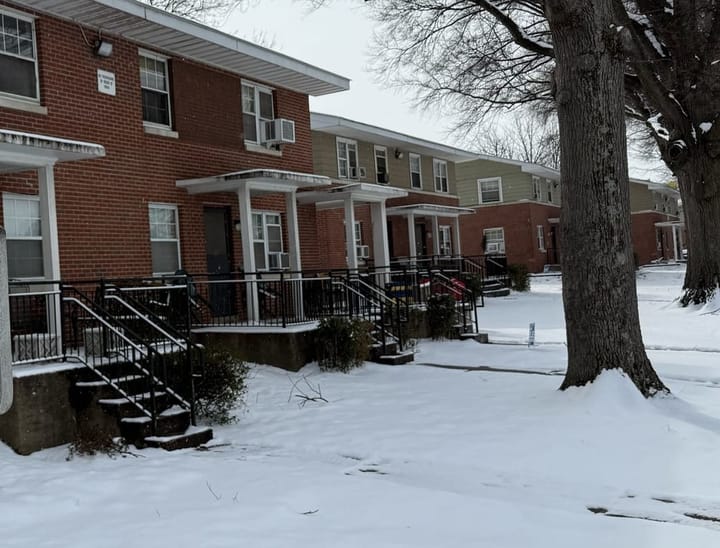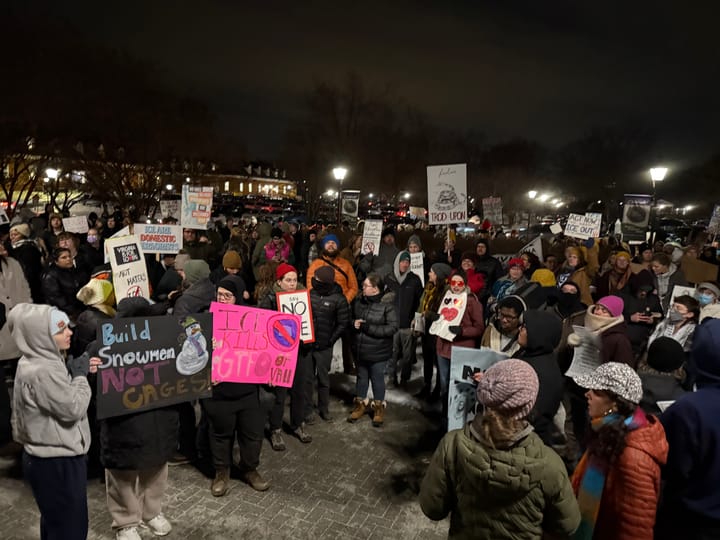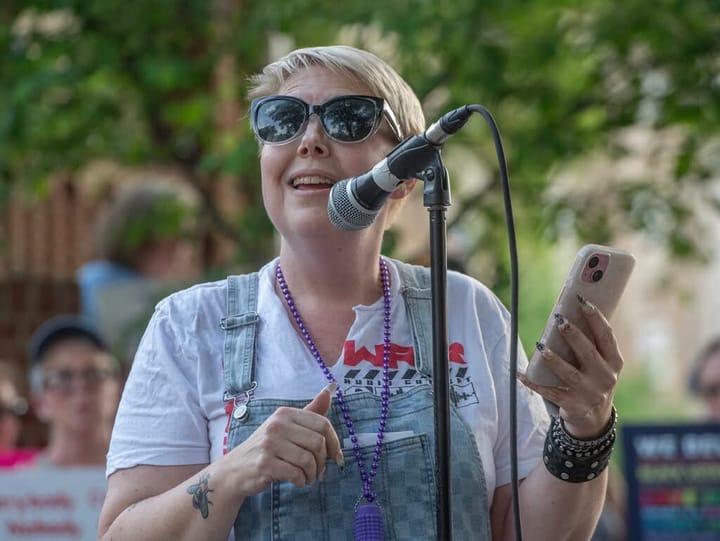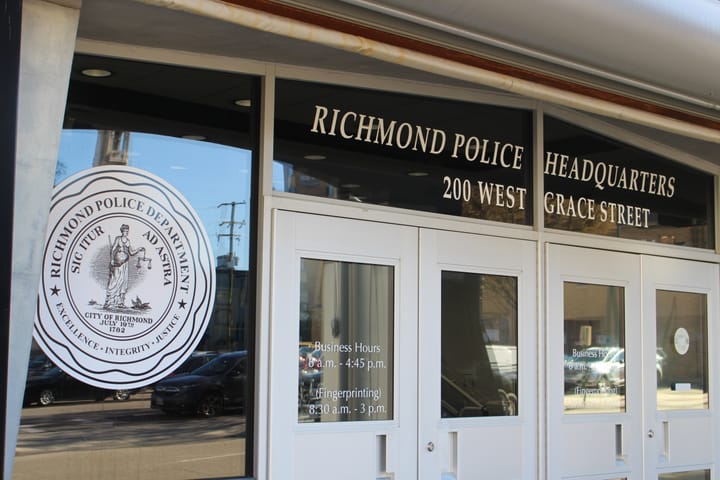Richmond has at least 87 vape shops. Police say most are selling marijuana.
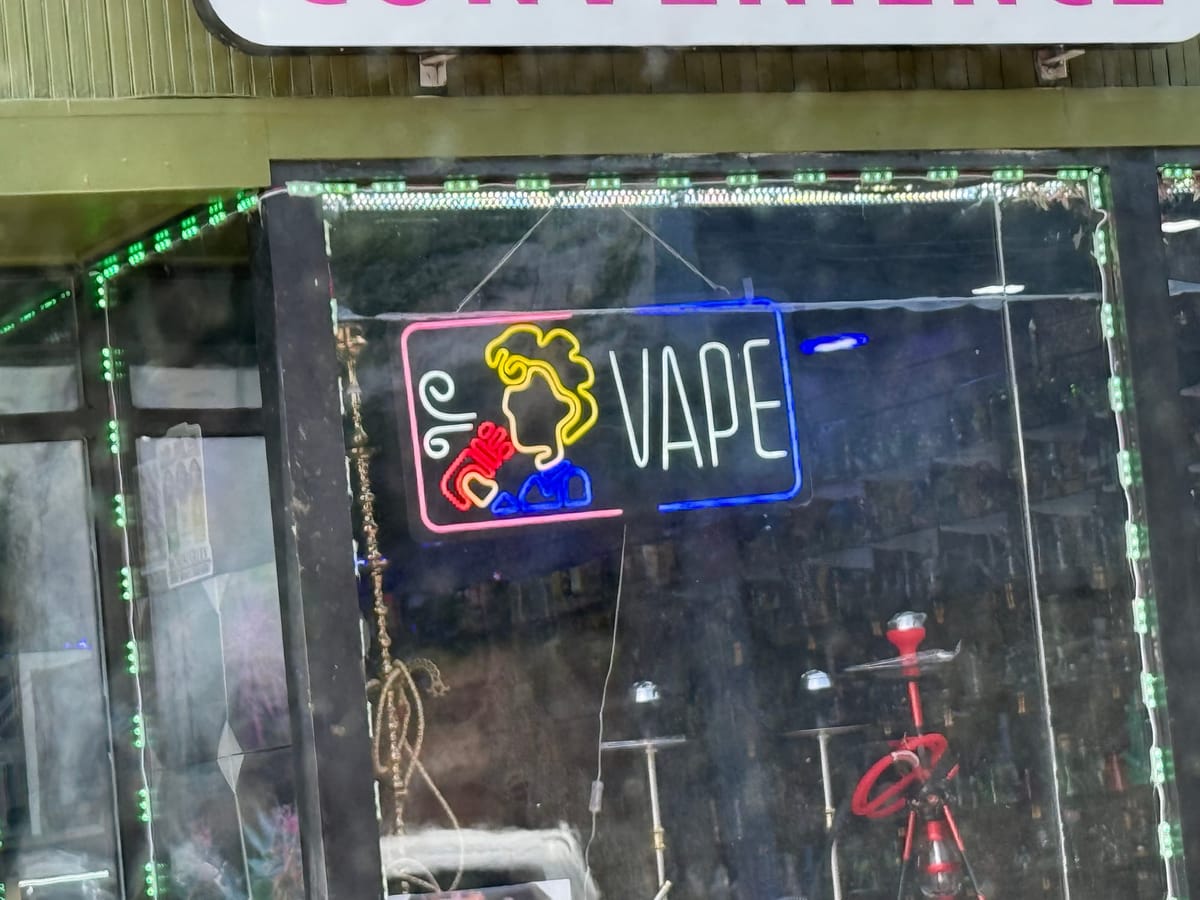
As Richmond continues to try to crack down on vape shops, Richmond Police Chief Rick Edwards says his force has identified at least 87 such businesses around the city.
“We have more vape shops than probably any other store in our city,” he told the City Council’s Public Safety Committee Tuesday. “The majority of them are involved in the distribution of marijuana or other THC products.”
This July, the Council passed an ordinance that in practice prohibits the opening of new vape shops in most of Richmond by barring them from being located within 1,000 feet of a residential area, school, park, public library, church, child day center or another vape store.
But the new rules have no impact on those shops that were already operating or had obtained a certificate of occupancy or zoning compliance when the ordinance went into effect July 28.
Nor do they impact preexisting vape shops whose ownership is transferred to someone new: “Once the use has been established, the use can be grandfathered,” said Planning Director Kevin Vonck.
He pointed to one exception. If a business in a newly prohibited area doesn’t actually act as a vape shop for two years, its owners would have to reapply to the Planning Department for a certificate of zoning compliance or occupancy and would be subject to the new limits.
Otherwise, it can be tough for officials to shut down operations permanently, even if illegal activity has previously occurred there.
“When we do coordinated enforcement, we often do find building code violations, health code violations” or delinquent taxes, said Vonck. But “those elements are not in and of themselves enough to stop the use.”
Crime hotspots
Officials say the prevalence of vape shops is a problem not only because many market their products to youth but because they are increasingly becoming hotspots for crime.
This year, Richmond has seen a 15% uptick in commercial robberies compared to 2024, and Edwards said a third of all of those crimes have occurred at vape shops. Most of them are being carried out by armed individuals who conduct violent “takedown”-style operations, he said.
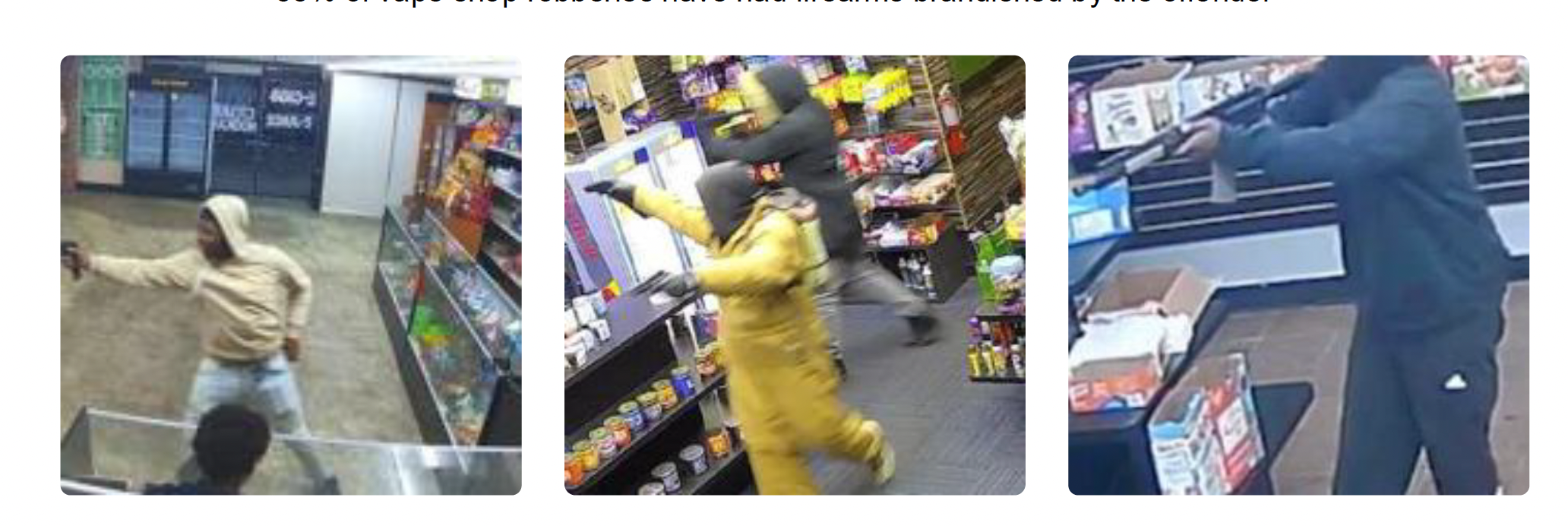
The potential for shootings in these circumstances are high, Edwards indicated. In 88% of the robberies of such establishments, the robbers have brandished firearms, and cashiers aware of the rising threat are arming themselves more frequently for protection.
Raids of 10 city vape shops have turned up 10 guns and 75 pounds of marijuana or other products containing THC, including candy and snack lookalikes with names similar to non-drug products — Reefer’s instead of Reese’s Peanut Butter Cups, Cheetos Puffs, Stoney Patch Kids and more.

“Many vape shops are just de facto marijuana shops at this point,” said Edwards.
Because marijuana sales remain illegal in Virginia, those stores that are selling the drug are conducting large amounts of sales in cash, another draw for robbers looking for a lucrative target.
While police have identified at least 87 establishments around Richmond, the police chief cautioned more may be flying below the radar.
“We executed a search warrant recently on a shop that looked like a home from the outside,” he told the Public Safety Committee. “Now they actually had a business license, but there was no signage, there was nothing. And we got a tip from the community and went in there and it was just marijuana sales.”
Councilor Reva Trammell said that in her 8th District in Richmond’s Southside, “every time I turn around, I see a new one,” while Council Sarah Abubaker (4th District) called the businesses “a scourge on the city and the region in general.”
Frustrating for both police and the city Planning Department, said Vonck and Edwards, is the ability of many shops to reopen despite crackdowns. While the city has had some success in shutting down locations because the operators have no certificate of occupancy or business license, those who have that paperwork in place are frequently able to get back up and running.
City officials are exploring other ways to deter bad actors through powers outlined in Richmond city code for dealing with drug blight, nuisances and accidental discharges of firearms, the pair told the committee.
Councilor Stephanie Lynch also floated the idea of using taxation as a way to clamp down on the further proliferation of vape shops — “let’s tax them 5,000%,” she said Tuesday — but local governments are currently prohibited from imposing their own taxes beyond Virginia’s 11 cents per milliliter rate. A bill that would have given them that power died during this year’s General Assembly.
“If you all have ideas, we are in the process of formulating our legislative agenda” for the 2026 session, she told Vonck and Edwards.
How receptive the General Assembly might be to those concerns remains up in the air ahead of Election Day next Tuesday.
“I think some people are waiting on the sidelines until the election next week to see which direction the commonwealth goes as far as legalization,” said the police chief. “I think that’ll determine what needs to happen next year.”
Contact Reporter Sarah Vogelsong at svogelsong@richmonder.org
The Richmonder is powered by your donations. For just $9.99 a month, you can join the 1,200+ donors who are keeping quality local news alive in Richmond.


